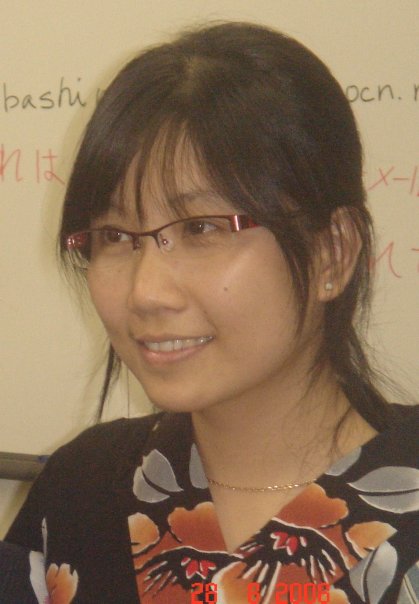Bong Bong, Congratulations!!! You have not tried for nothing! At last, you are qualified Master degree holders!

See! ICT makes our life easier, you don't have to waste time and money travelling back and forth :-)

It's all about my journey of life in Japan


Following the long orientation was Japanese Training Course conducted at Waseda Hoshien. All Cambodian fellows in Tokyo took 初級 (elementary) course with some other students from Laos, Myanmar, The philippines, and Kyrgyzstan. For me, my course was from July 18th to August 29th, 2008 which is equal to 152 hours. I ‘d been studying every Monday to Friday, and five hours per day: 9:30am -12:00am, and 1:30pm – 4:00pm.
Japanese language is quite difficult to learn, but it is very important for surving in Japan espcially in Tokyo. Hence, the class was very busy due to overloaded homework everyday. However, the class was very interesting thanks to the professional skill and efforts of all sensei.せんせい、いろいろ おせわに なりました。どうも ありがとう ございました。
I was finally given a Japanese certificate:
Honestly, my Japanese is still poor, I still cannot full understand what Japanese people are saying. It’s pretty easier to ask question, but getting answer is a matter :-)
From the second day of entering Japan until July 17th 2008, there was an 12 days long (no program for Sat and Sun) orientation prepared by JICE at TIC - Tokyo of International Center, for all JDS fellows who came to Narita airport, Tokyo.
The program of the orientation included:
Briefing and Orientation on Rules of Japanese Grant Aid for Human Resource Development Scholarship (JDS) Fellows and Information for Living in Japan.
Exchange view with senior JDS fellows on academic life and research methodologies as well as daily life.
Welcome Reception with the presence of officials from respective embassies, professors and staffs of respective universities, ministry of Foreign Affairs, and JICA.
Opening bank account
Lecture “Policies and Administration of Japan” by Mr. Akira Nakamura, Pro. Graduate School, Meji University
Lecture “Outline of JICA’s Activities and Expectation for Participants” by Mr. Masaei Matsunaga, Deputy Director General for Training Affairs and Citizen Participation Dept. JICA
Move to Tachikawa-Bosaikan by bus; a center is designed in order to exercise how to prevent yourself from various emergency and natural disaster.
Workshop on “Cross Cultural Understanding” by Ms. Mariko Watanabe, Certified clinical psychologist of Tokyo International Center, JICA
Lecture “ The Japanese Experience through Economic Growth and Restructuring in Post War” by Mr. Ryokichi Hirono, Pro. Emeritus, Seikei University.
Lecture “ Japanese Society and Culture” by Mr. Kenichi Namai, Pro. Waseda University
Culture program/ Inspection of Tokyo:
Asakusa
Tokyo Metropolitan Government.
Imperial Palace
Alien registration at the Shinjuku Ward Office
On July 10th 2008, some students from Laos, Cambodia, Myanmar, and Kyrgyz moved to branch office IUJ – Internation Universtiy of Japan, and on July 14th 2008, some moved to branch office Toyohashi University of Technology, Nagoya University, and tsukuba University.
Handouts and CDs were also provided for reference :-)

